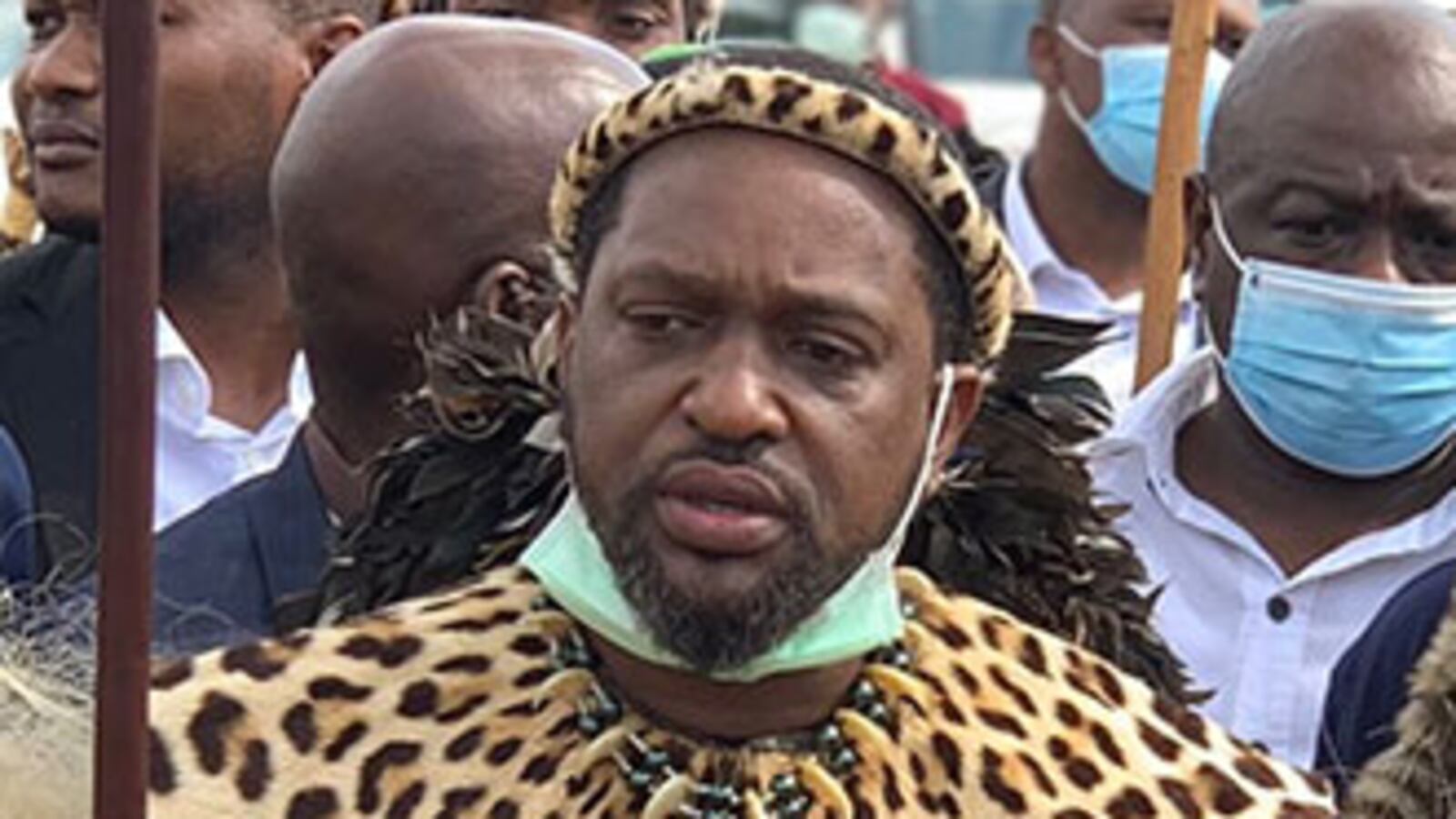The new king of the Zulu nation, whose claim to the throne has been contested by several of his 27 siblings, has been forced to deny that he was the subject of an attempted poisoning. The alleged poisoning comes after his most senior courtier died suddenly—in mysterious circumstances—and another was shot in an ambush.
King Misuzulu, the third eldest surviving son of the previous king, was crowned last year after bitter in-fighting among the extended family.
When his father, King Goodwill Zwelithini, died in 2021, Queen Mantfombi was appointed to decide who would become the next Zulu leader. She died before making a public pronouncement, leaving a will that named Misuzulu as the successor. That will prompted public and legal challenges from other branches of the family.
The start of Misuzulu’s reign has been turbulent with as many as four royal aides dying in recent months.
Media reports of an attempted poisoning were triggered by a statement from the Zulu nation’s traditional prime minister, which was reported by the The Times of London and the BBC.
Prince Mangosuthu Buthelezi said in the statement that Misuzulu opted to be treated in Eswatini (formerly Swaziland), rather than South Africa, saying: “His Majesty felt uncomfortable seeking treatment in South Africa, as his parents had both received treatment in South Africa and subsequently died.”
A spokesman told the Times that Misuzulu was now “in perfect health” after being examined “to mitigate against any untimely eventuality, given the reports of Mr. Xaba’s sudden passing.”
A day later, King Misuzulu’s head of communications, Prince Africa Zulu, tried to downplay the incident, telling the Mail & Guardian that the king had just gone for a check-up while paying a visit to his uncle, King Mswati III of Eswatini.
“This was informed by the context of our current times of pandemics such as COVID-19 and other dangerous ailments,” the statement said.
Although the Zulu Empire is no longer formally recognised as a country, its territory, forming part of South Africa, is largely autonomous and the traditional role still comes with significant power, prestige, palaces and financial stipends. Zulus are South Africa’s largest ethnic group.
Suggestions that Misuzulu was the subject of an attempted poisoning will stir comparisons with the killing of the kingdom’s founder, Shaka Zulu, who was speared to death by jealous family members in 1828, and will be an unwelcome reminder of the instability and rivalry that has long bedevilled the kingdom’s ruling family, worsened by polygamous traditions and no written constitution.
There will also be fears that it marks a dramatic end to over half a century of relative stability under Misuzulu’s father, Goodwill Zwelithini.
His death set off a renewed round of infighting as he had 28 children by six wives, and Misuzulu’s mother, Queen Mantfombi, was his second wife.
His first wife and her daughters launched court challenges to the validity of decrees naming Misuzulu as king.







